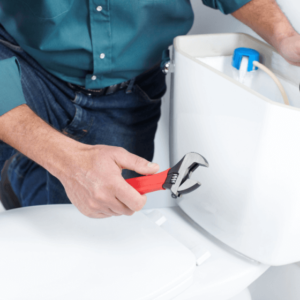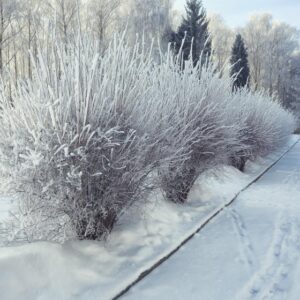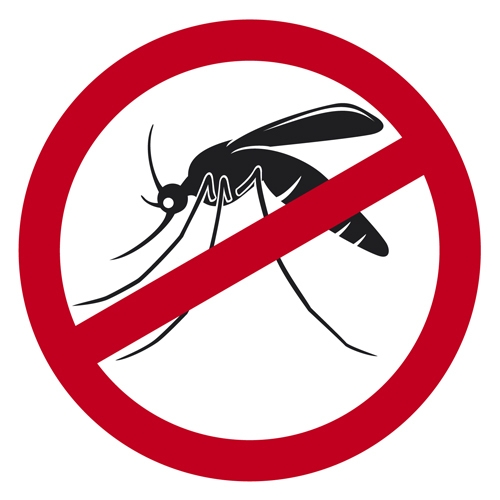Summer is a great time for barbecues, pool parties, and outdoor adventures. However, mosquitoes can quickly put a damper on the warm-weather fun and leave everyone feeling itchy. Fortunately, there are several ways to put an end to those tiny nuisances. To see why this guide’s mosquito prevention tips are effective, it helps to know a few important facts about mosquitoes.
What Time of Year Do Mosquitoes Appear?
The answer to this question varies in every region. To breed, mosquitoes need standing water. According to research, the highest hatch rate for eggs happens when the water is about 80 degrees Fahrenheit. Mosquitoes do not bite when temperatures drop below 50 degrees Fahrenheit. When temperatures reach about 50 degrees, mosquitoes hibernate. At 60 degrees, they become lethargic, and they thrive at about 80 degrees. Watch temperature trends in your area to know when you can expect to see mosquitoes.
How Do Mosquitoes Multiply?
Mosquitoes lay about 100 eggs at a time. The eggs are near bodies of water or in containers of water just above the water line. There are four life stages, which are egg, larva, pupa, and adult. During the first two stages, mosquitoes stay near the water. In the pupa stage, they do not feed. Adults feed on blood and are the culprits of painful, itchy bites. To get rid of these pests, use the right mosquito control methods for different stages.
What Is the Most Effective Mosquito Repellent?
Regular bug repellent is not effective on mosquitoes. Spray that contains DEET is the best mosquito repellent. If you are enjoying all-day adventures in areas with heavy mosquito populations, spray with 20% to 30% DEET provides long-lasting protection. Lower concentrations are good for short-term exposure to mosquitoes. DEET was originally developed for the U.S. Army in 1947 and is approved by the Centers for Disease Control.
What Smells Do Mosquitoes Hate?
Although some research shows that mosquitoes dislike certain scents, rubbing oils on your skin may not keep them all away. Some of the smells that mosquitoes dislike include clary sage, cypress, fennel, immortelle, yarrow, lemon, eucalyptus, and catnip. So, what smells do mosquitoes like? They are attracted to sweet and flowery scents. This includes many perfumes, body lotions, and body wash products.
How to Get Rid of Mosquitoes on Your Property Step by Step
By following these steps, you can effectively target mosquitoes at every life stage. The best mosquito repellent for a yard is eliminating their survival resources. This is especially true in the egg and larva stages.
Step 1: Declutter the Yard
Remove any buckets, toys, or clutter from the yard. If there are old tires collecting water, those can be mosquito breeding grounds as well. Look for anything removable that can be a source of standing water. Mosquitoes do not require much space to breed in stagnant water. In fact, even a plastic bottle cap can become a mosquito breeding ground.
Step 2: Check the Lawn
If the lawn is soggy because you live in a rainy area, consider adding a drainage system. Overwatering the lawn can lead to puddles or areas where water collects. If you have low areas that are prone to water collection, you can fill them with cement or dirt. Check for leaky or broken sprinkler heads as well. Also, keep your grass cut short. When grass is longer, it holds more moisture.
Step 3: Keep Outdoor Water Sources From Stagnating
Pools, outdoor ponds, and pet dishes are some examples of water sources that you may not be able to completely eliminate. To breed successfully, mosquitoes need water that stands for about five days. Change your pet’s water frequently. You can either clean a pond often or stock it with mosquito-eating fish to minimize breeding.
If you have a hot tub, keep it covered tightly. Mosquitoes can still breed in water that is on top of pool covers. Cleaning your pool regularly, chlorinating it, and using a mosquito trap can help reduce mosquitoes. Change birdbath water regularly, and be mindful of any tarps that may collect water.
Step 4: Clean the Gutters
At least once each year, clean leaves and debris from your gutters. Clogs in the gutter system allow water to collect and create a potential mosquito breeding area.
Step 5: Drill Holes in Outdoor Recycling Containers
Liquid can get inside outdoor recycling bins from rain or leaking containers. Since people often do not clean these bins, they can become prime mosquito breeding grounds. Drilling drain holes in the bottom prevents liquid from stagnating.
Step 6: Utilize Mosquito Deterrents
In addition to the previous steps, this step helps give mosquitoes even more reasons to stay away. Consider adding some mosquito repellent plants to your property. Lavender, catnip, jasmine, eucalyptus, lemongrass, and chamomile are examples of plants that repel mosquitoes. Use sodium-vapor orange lights or yellow lights outdoors to avoid attracting mosquitoes.
You can use repellent pads, heated coils, electronic sensory disruptors, or foggers outdoors as needed. Be sure to read reviews to find the best mosquito repellent pellets, sprays, granules, or other products for yards and lawns. Once mosquitoes reach the pupa stage, they are harder to eliminate. Look for mosquito repellent sprays or mists for your yard that target the pests in pupa and adult stages if you have an infestation.
How to Keep Mosquitoes Away From Yourself Step by Step
When you are camping or spending time outdoors away from home, there are ways to get rid of mosquitoes around you. These are some helpful steps to follow.
Step 1: Plan Your Clothing
When the weather is hot, shorts and tank tops are tempting. If you choose long sleeves and pants, however, you are less likely to attract mosquitoes. Also, since mosquitoes are attracted to dark colors, it helps to wear light-colored clothes. You can also wear a mosquito head net.
Step 2: Choose the Right Repellent
Remember that the best bug repellent for mosquitoes contains DEET. If you are going to a barbecue or an outdoor event for a few hours, a spray with about 10% DEET is sufficient. Sprays with 20% to 30% DEET are the best mosquito repellents if you need all-day protection. Apply the mosquito repellent to your clothes, and try to avoid spraying it on your skin. This is another good reason to wear clothes that cover more of your body.
Step 3: Bring Reinforcements
Repellent pads, heated coils, electronic repellent devices, and foggers are helpful mosquito repellents in areas where populations are thicker. If you are camping, light a campfire if you are allowed. Smoke helps deter mosquitoes.
Step 4: Treat Your Gear
This step applies if you are camping or going on an all-day adventure. The CDC recommends using permethrin to treat tents, boots, and other outdoor gear to deter mosquitoes. Use a 0.5% permethrin solution, and be sure to follow the instructions carefully.
By taking all these mosquito prevention steps, you can stay more comfortable when spending time outdoors at home and on the road during the warmer months. Find a True Value store near you to stock up on everything you need for effective mosquito control.












